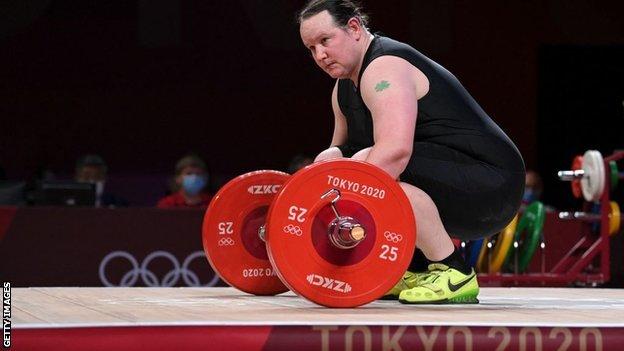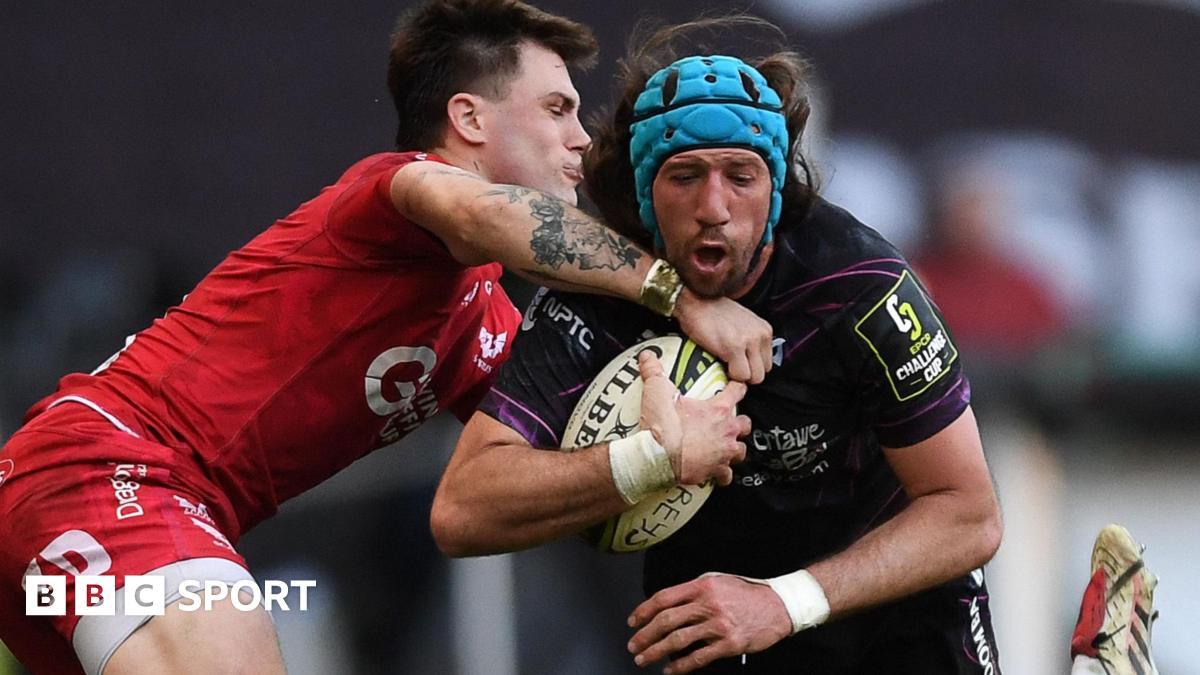ARTICLE AD BOX
 At Tokyo, Laurel Hubbard became the first transgender athlete to compete at the Olympics in a different gender category to that in which they were born
At Tokyo, Laurel Hubbard became the first transgender athlete to compete at the Olympics in a different gender category to that in which they were bornNew International Olympic Committee guidance on transgender inclusion could undermine integrity in sport, say a group of medical experts.
The IOC says it should not be assumed a transgender athlete automatically has an unfair advantage in female events.
Its new framework also changes the policy on requiring transgender women to suppress testosterone levels in order to compete in those events.
A statement questioning the move has been signed by 38 medical experts.
They are linked to the International Federation of Sports Medicine and European Federation of Sports Medicine Associations.
Authors of the statement - published in the British Medical Journal Open Sport and Exercise Medicine - include the head of World Athletics' medical department, the medical director of cycling's ruling body the UCI and the chair of World Rowing's medicine commission.
They say the guidance has been drafted mainly from a human rights perspective with little consideration of medical and scientific issues.
The statement calls on the IOC to set formal standards, based on competitive fairness and the best available science, for sports to follow.
"The authors would like to see further discussion and consultation with all stakeholders," it reads.
The IOC's framework on transgender inclusion, which replaces guidelines issued in 2015, places responsibility on individual federations to determine eligibility criteria in their sport.
In their statement, the medical experts say most federations will not have the capacity to implement the new guidance.
The 10-point IOC document is "not legally binding" and not every sport is expected to find a solution before the Paris 2024 Olympics.
The old policy said transgender athletes would be allowed to compete provided their testosterone levels were below a certain limit for at least 12 months before their first competition.
Under the new guidance, relying on testosterone levels alone in female events is no longer deemed sufficient grounds to determine whether or not a competitor has an unfair advantage.
"You don't need to use testosterone [to decide who can compete] at all. But this is guidance, it's not an absolute rule," said IOC medical director Richard Budgett in November.
The statement from the medical experts reads: "As high testosterone concentrations can provide a baseline advantage for competitors in certain sports, high testosterone concentrations must be mitigated in the female category of these sports to maintain fairness and integrity."
The IOC's new framework was prepared over two years in consultation with more than 250 athletes and other stakeholders, and will be implemented after next month's Beijing Winter Olympics.
The guidance also applies to athletes with differences of sex development (DSD) such as South African 800m runner Caster Semenya.
Governing body World Athletics has defended its existing policy, which forces DSD athletes to suppress their testosterone levels to compete in certain events, citing the rejection of Semenya's challenge of the rules by the Court of Arbitration for Sport in 2019.
In September 2021 the Sports Councils Equality Group (SCEG) said transgender inclusion in sport could be improved by adding 'open' and 'universal' categories to male and female ones.
Its review of non-elite sport in the UK concluded that current policies were not fit for purpose and required a reset.
"For many sports, the inclusion of transgender people, fairness and safety cannot co-exist in a single competitive model," it said.
- Semenya Q&A: Who is she, what is DSD and why is her case important?
- The reluctant history-maker at the centre of sport's transgender debate

- The artist formerly known as evil or genius? The team uncover the truths behind pop legend Prince
- Who is the Q Shaman? The search for the story that drove crowds to storm the US Capitol


 3 years ago
34
3 years ago
34








 English (US) ·
English (US) ·